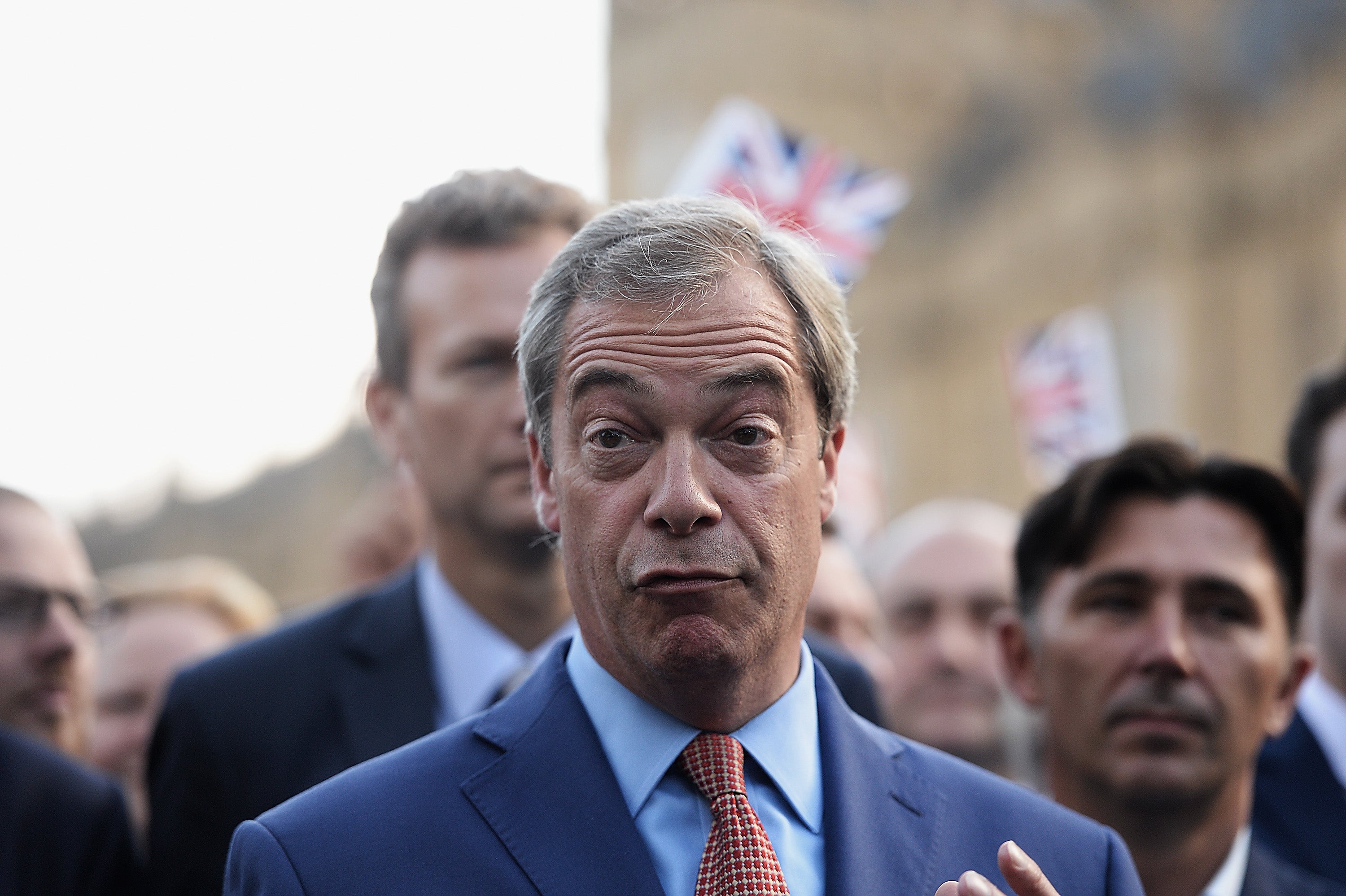Since the Brexit vote, Britain has become a more intolerant place to live
Brexit, 6 years on: As the Vote Leave campaign gained momentum, there was a sense that people felt more comfortable about being openly racist and xenophobic – and I believe this continues today


Your support helps us to tell the story
From reproductive rights to climate change to Big Tech, The Independent is on the ground when the story is developing. Whether it's investigating the financials of Elon Musk's pro-Trump PAC or producing our latest documentary, 'The A Word', which shines a light on the American women fighting for reproductive rights, we know how important it is to parse out the facts from the messaging.
At such a critical moment in US history, we need reporters on the ground. Your donation allows us to keep sending journalists to speak to both sides of the story.
The Independent is trusted by Americans across the entire political spectrum. And unlike many other quality news outlets, we choose not to lock Americans out of our reporting and analysis with paywalls. We believe quality journalism should be available to everyone, paid for by those who can afford it.
Your support makes all the difference.I was months away from my 18th birthday when the UK voted for Brexit. I couldn’t vote on an issue that would affect me and so many other young people for years to come.
On the sixth anniversary of the Brexit vote, as we reflect on its consequences, I can’t help but feel frustrated at the decision that I and the majority of my generation didn’t make but continue to be affected by.
From the racist and xenophobic hate crimes targeted at communities like mine, to the subsequent lack of travel, work and study opportunities, the aftermath of Brexit has meant that I – and, dare I say, the majority of others in Britain – have been left worse off.
As a politically engaged young teenager, I remember prime minister David Cameron announcing the Brexit vote, but feeling confused as to what it actually meant. Then, in the lead-up to the referendum, I became increasingly worried.
I remember the vitriol about taking control of our borders and stricter immigration policies to keep people who looked like me out of this country. Brexit quickly turned from wanting more autonomy from the European Union regarding laws and policies into a battle of us versus them.
But I and millions of other people of colour in the UK were born and brought up here and countless EU nationals have long called this county home, so why were we made to feel as though we were no longer welcome?
Unfortunately, this narrative didn’t stop but increased after the results were announced. Since 2016, when Britain voted on Brexit, racially motivated hate crimes have increased by a staggering 72 per cent and surged by 23 per cent in the 11 months after the referendum. While other factors might be involved in this rise, I can’t help but feel that post-Brexit Britain isn’t as welcoming and inclusive as it was before.
I remember hearing about people of colour facing racist abuse in the street, being told they would be kicked out of the country, and people at my college talking about how great Brexit and Donald Trump were (this was the same year he was elected) while I was close enough to hear them. As the Vote Leave campaign gained momentum, there was a sense that people felt more comfortable about being openly racist and xenophobic – and I believe this continues today.
And the fact that I and millions of others weren’t able to vote in the referendum left me feeling even more frustrated. In the UK, you can vote only once you’ve turned 18, but when Scotland held its independence referendum in 2014, the voting age was lowered to 16.
It makes sense to allow young people to vote in a referendum that will decide the future of their country – so why didn’t the government do the same for Brexit?
Debates about lowering the voting age have been going on for many years, but never were they more relevant than during the run-up to the Brexit referendum. The consequences of the referendum arguably affect young people the most – from limiting opportunities to work, study and travel abroad to the direct impact on Britain’s economy, millions of young people won’t fully remember a time when these things were possible, and it just doesn’t feel fair.
This is especially frustrating when you look at how Britain voted in the referendum based on age. People aged under 25 were twice as likely to vote remain (71 per cent) than leave (29 per cent), compared with 64 per cent of voters aged over 65 voting to leave. Millions of young people were not allowed to vote in a referendum that would directly affect them for longer, and I still can’t understand why.
To keep up to speed with all the latest opinions and comment, sign up to our free weekly Voices Dispatches newsletter by clicking here
I have friends who can no longer afford to study abroad since the UK left the Erasmus scheme, which allowed me and thousands of other UK university students to complete a part of their degree in a European country. The replacement for Erasmus, the Turing scheme, is arguably a good alternative, but nowhere near as attractive or financially beneficial as its predecessor.
Not only this, but being able to travel to and work in Europe feels more and more difficult. From new regulations such as needing an ETIAS visa waiver to travel to the EU from 2023, to needing at least six months to run on your passport in order to travel and the requirement to get a visa to work abroad, dreams of backpacking and making memories as a young person travelling in Europe feel less and less realistic.
I would try to name some of the positives of leaving the European Union, but I just can’t think of any. As a young person of colour, I believe that Brexit has resulted in fewer opportunities and an increase in racial and xenophobic hatred in this country. Politics has felt more and more divided since the referendum, and many people do not understand what they voted for and did not expect the consequences.
Politicians took advantage of people’s anxieties and multiplied them to make enemies of the immigrant next door. Brexit has and will continue to affect Britons at home and abroad, with young people and minorities suffering the most. Six years down the line, it still doesn’t seem very fair.
To mark the six-year anniversary of the referendum on Britain’s membership of the EU, Voices brings you Brexit, 6 years on – a series exploring the impact of the vote to leave


